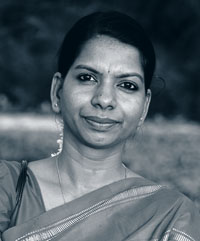ஒரு பேருந்துப்பயணம். பொழுதைக்கழிக்க பேருந்து வீடியோவில் எந்தப்படத்தைப் பார்க்கலாம் என்ற பலரின் பலவித ஆலோசனைகளுக்குப் பிறகு கர்ணனைப் பார்க்கலாம் என்ற ஒரு மனதான முடிவுக்கு வந்தோம். புதிய வண்ணங்கள் ஏறிய கர்ணன் திரைப்படம். 1964 - ல் வெளிவந்த திரைப்படம். சிவாஜி கணேசன், சாவித்திரி, தேவிகா, என்.டி.ராமாராவ் ஆகியோர் நடித்திருக்கின்றனர்.
மிகவும் முக்கியமான விடயம், முழுப்படமும், கர்ணன் என்ற முழு குணச்சித்திரமும் பார்ப்பனர்களுக்கு எதிராக, எந்தவிதத் தயக்கமுமின்றி சொல்லப்பட்டிருப்பது தான்! பார்ப்பனீய மனம் எத்தகைய தந்திரமான சூழ்ச்சியான அமைப்புகளைக் கொண்டு இயங்கும் என்பதைத் தெளிவாகவும், நேர்த்தியான திரைக்கதை அமைப்பாலும் சித்திரித்திருக்கின்றார், படத்தின் இயக்குநர், பி. ஆர். பந்துலு. சமீபத்தில் அந்த படம் மீண்டும் திரைக்கு ஏறி, நில்லாமல் ஓடிக் கொண்டிருக்கிறது! இவ்வெற்றிக்கு நிறைய காரணங்களைப் படத்தில் காணமுடிகிறது.
கர்ணன் என்னும் கொடையாளன், என்பவன் இம்மண்ணின், மக்களின் குறியீடாக இருக்கிறான். செஞ்சோற்றுக்கடன் தீர்க்கும் நன்றியுணர்வு, இல்லையெனாது கொடுத்தல், மான உணர்வு, துன்பம் தாங்குதல், மதிநுட்பம், வெளிப்படையான குணங்கள் என கர்ணன் உயர்ந்து கொண்டே போகிறான். சிவாஜி கணேசன் தன் அசாதாரண நடிப்பால் கர்ணன் எனும் ஒற்றை மனிதனுக்கு சற்றும் சளைக்காமல் பேருருவம் கொடுக்கிறார்.
ஒரு தேரோட்டியின் மகனாக வளரும் கர்ணன், இயல்பில் சூரியனின் மகன். அவனுக்கு இயல்பாக அமைந்த தீரங்கள் எப்படி அவனிடமிருந்து பொய்வேடங்களாலும், சுயநலத்தாலும் கொஞ்சம் கொஞ்சமாகப் பறிக்கப்படுகின்றன என்பதும், தான் பிறந்த குலத்தைக் காரணம் காட்டித் தனக்கு மறுக்கப்பட்ட கலைகளையும் வீரங்களையும் அவன் வேட்கையுடன், சிரமங்களுடன் எப்படி அவன் கற்றுக் கொண்டான் என்பதும், அவையெல்லாம் அவனுக்கு உபயோகப்படாமல் போகுமாறு பார்ப்பனீய உலகம் எப்படி அவனிடமிருந்து சூறையாடியதும் என்பதும் தான் கர்ணன் என்ற காவிய கதாபாத்திரம்.
சாதியின் துல்லியமான ஒடுக்குமுறை வெளிப்படையாகப் புலனாகிறது. கர்ணன் உயிருக்குப் போராடும் நிலையிலும் அவனுடய உயிரையும் தானதர்மங்களால் உண்டான களிப்பையும் கூட விட்டுவைக்காமல் அந்தணவேடம் ஒன்று வந்து வாங்கிச் செல்கிறது.
ஒவ்வொரு நிலையிலும் கர்ணனிடமிருந்து வஞ்சகத்தால் சத்தியத்தின் மேல் சத்தியங்கள் பெறப்பட்டு, அவன் உடைமைகள் எல்லாம் அபகரிக்கப்படுகின்றன. இந்த சூழ்ச்சிகளையும் வஞ்சகங்களையும் அறிந்திருந்தும் கர்ணன் தன் நல்ல குணங்களை இழக்காமல் இருப்பதும், தன் துணிவின் மீது நம்பிக்கை கொள்வதும் கர்ணனைத் தொடர்ந்து கொண்டிருக்கும் நம்மை அவனுடன் இரண்டறப் பிணைக்கிறது.
பஞ்சபாண்டவர்களும் கெளரவர்களும் ஏன் கிருஷ்ணனும் சந்தர்ப்பங்களுக்கு ஏற்றபடி தம்மை மாற்றி மாற்றிப் பேசிச் சமாளிக்கும் போது, கர்ணன் தன் வெற்றுக் கைகளுடன் சந்தர்ப்பத்தின் கைதியாகி நிற்கிறான். போர்க்களத்தில் கையாளப்படும் வியூகங்கள் போல கர்ணன் என்னும் சூரியனின் மகன் மீது, தேரோட்டியின் வளர்ப்பு மகன் மீது, இயல்பிலேயே கொடையுள்ளம் கொண்டவன் மீது, சொன்ன சொல் தவறாதவன் மீது எல்லா வியூகங்களும் கையாளப்படுவது எந்தச் சிரமமும் இல்லாமல் அற்புதமான வசனங்களால் சொல்லப்பட்டிருக்கிறது. படத்தின் திரைக்கதை அமைப்பு, பார்ப்பனீய அமைப்பைத் தெளிவுபடுத்துவதையே முழு நோக்கமாகக் கொண்டு அமைந்திருக்கிறது.
ஒவ்வொரு ஐந்து நிமிடத்திற்கு ஒருமுறையும் பாடலும் இசையும் எழும்பி, 'கர்ணன்' எனும் மனிதக் குறியீட்டைப் புரிய வைக்க உதவுகின்றன. பாடல்களில் வரும் ஒவ்வொரு சொல்லின் ஆழத்திலும் சாதியை மறுக்கும் நுட்பம் பொதிந்திருக்கிறது. இத்தனைக்கும் வணிகத் தளத்தில் இயங்கி வசூலை அள்ளிய படம்! சமயம் வாய்த்தால் மீண்டும் ஒரு முறை பார்த்துவிடுங்கள்!
குட்டி ரேவதி

